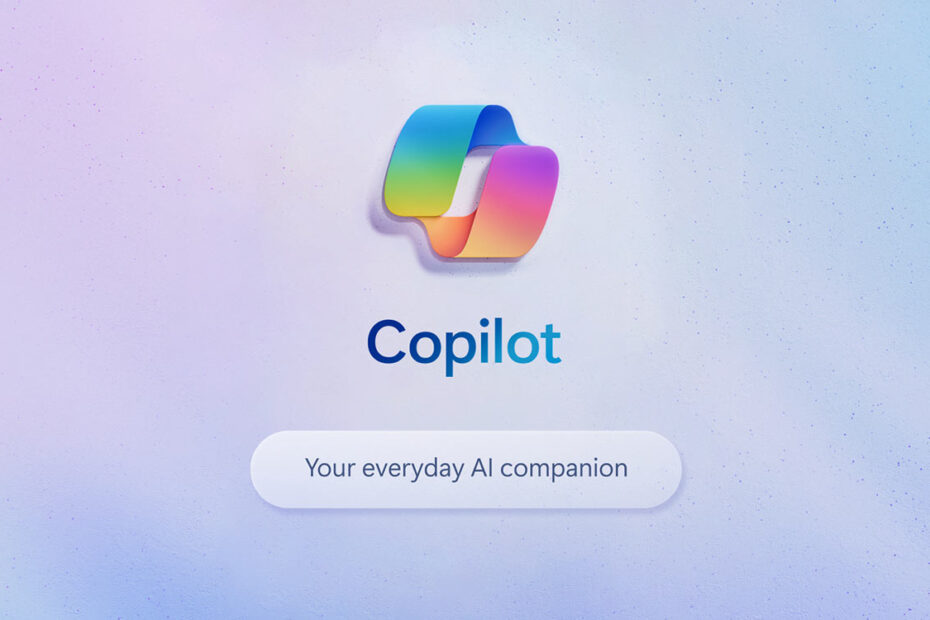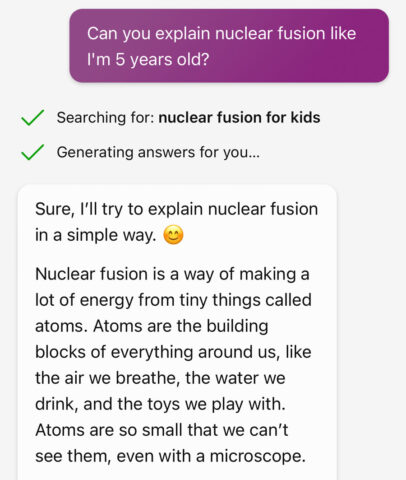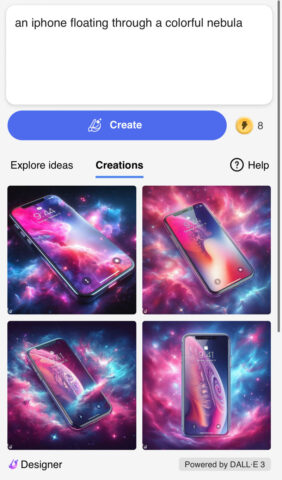Microsoft’s Copilot is now available on iOS, giving iPhone and iPad users an easier way to access the AI assistant.
Copilot is essentially a rebrand of Microsoft Bing’s AI integration, utilizing the same large language models from OpenAI that power ChatGPT. Both apps – plus Google’s Bard AI – offer similar chat-based interfaces capable of everything from drafting emails and writing stories to debugging code and analyzing data. So why might you choose one over the other?
There are a few core differences. If you’re already ensconced in the Microsoft ecosystem, you might benefit from Copilot’s integration with other Microsoft 365 apps and Microsoft Graph data. This potentially means you could use Copilot to schedule tasks, create presentations, or summarize documents. ChatGPT, by comparison, is a standalone product that doesn’t link up to other services. (With a few exceptions, if you know how to use Zapier for automation).
But perhaps the biggest differentiator right now is that Copilot offers free access to the top-of-the-line GPT-4 model, which is locked behind a $20/month paywall in the ChatGPT app. GPT-4 is significantly smarter than the GPT-3.5 model offered to free users of ChatGPT, so switching to Microsoft’s app offers users a chance to try out a more capable AI without dropping a dime. GPT-4 is off by default, but a toggle at the top of the app’s interface powers up its capabilities at the expense of speedy replies.
Copilot also rolls in the free use of DALL-E, the AI image generator that ChatGPT only shares with paying subscribers.
If it seems a little backward that OpenAI powers both apps, but gives its best tools to a “competitor,” consider that Microsoft has other reasons to get you on board. Every new user in its ecosystem is somebody who might later sign up for Microsoft 365. Although its chat functionality in the iOS app is free, Copilot also offers paid tiers for users who want full functionality across the Microsoft lineup.
Microsoft also collects more user data than ChatGPT. This isn’t necessarily a red flag, as it’s normal practice for most tech companies, but if it’s something that concerns you it’s worth reading Microsoft’s privacy policy. As with all iOS apps, you can Ask App Not To Track and deny location permissions to limit the app’s access to your data. You can also refuse to sign into a Microsoft account, although this will limit your access to image generation and integration with other services.
In conclusion, Microsoft’s Copilot and OpenAI’s ChatGPT, though stemming from the same AI roots, are diverging in their application and audience focus. It’s a fast-moving time for AI, and if you haven’t experimented with it yet, now could be a good chance to see what it can do. You can download Microsoft Copilot on the App Store.



